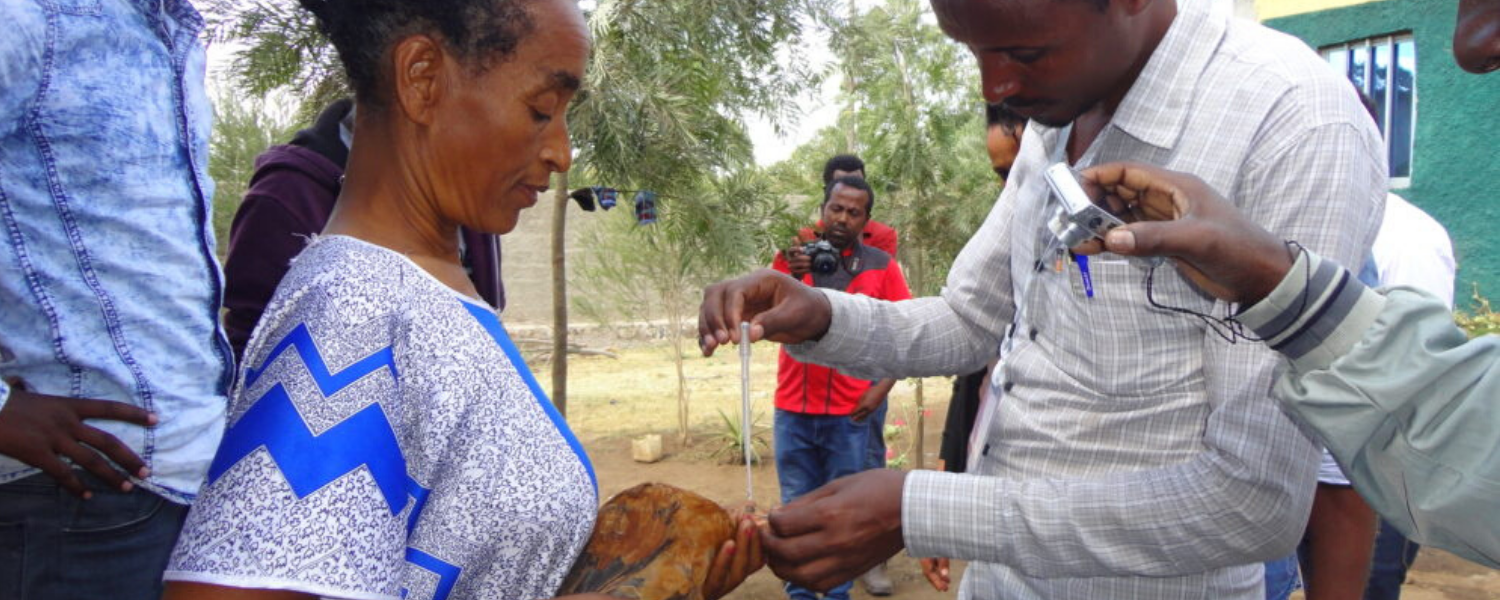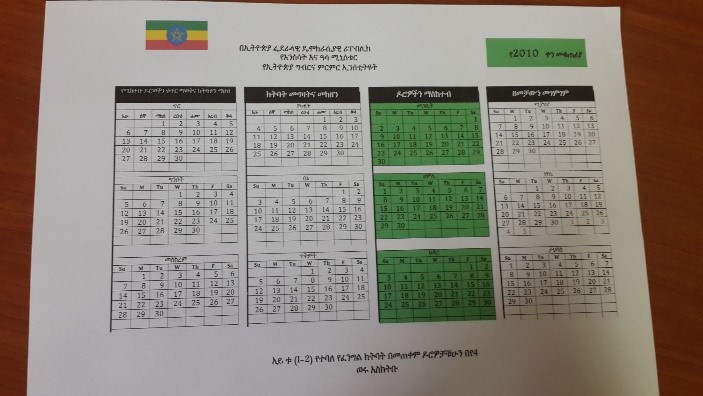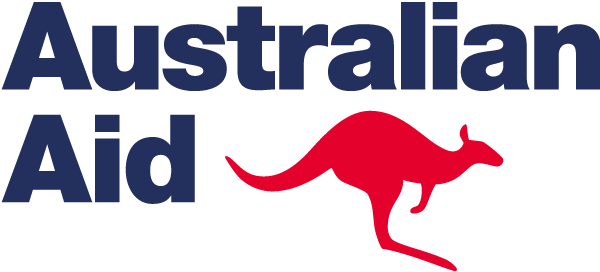Newcastle disease (ND), known as ‘Fengil’ in Ethiopia, is widespread across Africa with outbreaks regularly resulting in chicken mortalities of 50–100%. The control of ND in village chickens makes a significant contribution to food security and poverty alleviation of households and communities.
Kyeema has built the capacity of partner governments and local communities in Malawi, Mozambique, Tanzania and Zambia to produce, distribute and use the thermotolerant I-2 vaccine to control ND. To expand these activities, Kyeema, together with AU-PANVAC, has developed training curricula, manuals and related extension materials for the prevention and control of ND in Ethiopia.
In September 2018, with funding support from the Australian Embassy in Ethiopia, field training materials were adapted to the Ethiopian context and translated to Amharic by the Ethiopian Institute for Agriculture Research (EIAR). The training manual, posters and vaccination calendar for Community Vaccinators were pre-tested in two villages in the Amhara Region of Ethiopia. Pre-testing is a vital process in the development of effective training and extension materials. The materials need to be believable, appealing and understandable in the local context to be effective. Pretesting showed that participants had difficulty understanding certain posters. From this, the most effective extension materials to promote vaccination activities were identified.
Then two people from each region, coming from Amhara, Oromia, Tigray and Southern National Nationalities People, one person from the African Chicken Genetic Gains project in Ethiopia and one person from the Ministry of Livestock and Fisheries were trained as trainers of trainers of community vaccinators. The training was held in Debre Zeit.
It is expected that the trained people will go back to their regions and train people in their respective districts, who will then train Community Vaccinators in the villages. The training focused on the control of Newcastle disease in village chickens using freeze-dried vaccine.
Amharic vaccination calendar.
Our partners
What are we doing?
1. Translation of Community Vaccinator training manual and field materials into Amharic and field testing of materials
2. Training of nationals to be Community Vaccinator trainers.
3. Supporting the Government of Ethiopia through provision of information and ongoing discussions on vaccine delivery modalities to be trialled in Ethiopia.
4. Undertaking field activities to support the roll-out of Newcastle disease control for village chickens.
More importantly, why?
Increased knowledge and capacity to implement ND control programs
Sustainable ND programs for smallholder / village chicken production in Ethiopia.
Will this work contribute to ongoing change?
This project was designed to contribute to sustainable ND control through the use of participatory approaches and strengthening the exchange of information and ideas between organisations, national ministries, in-country departments and village chicken producers.




